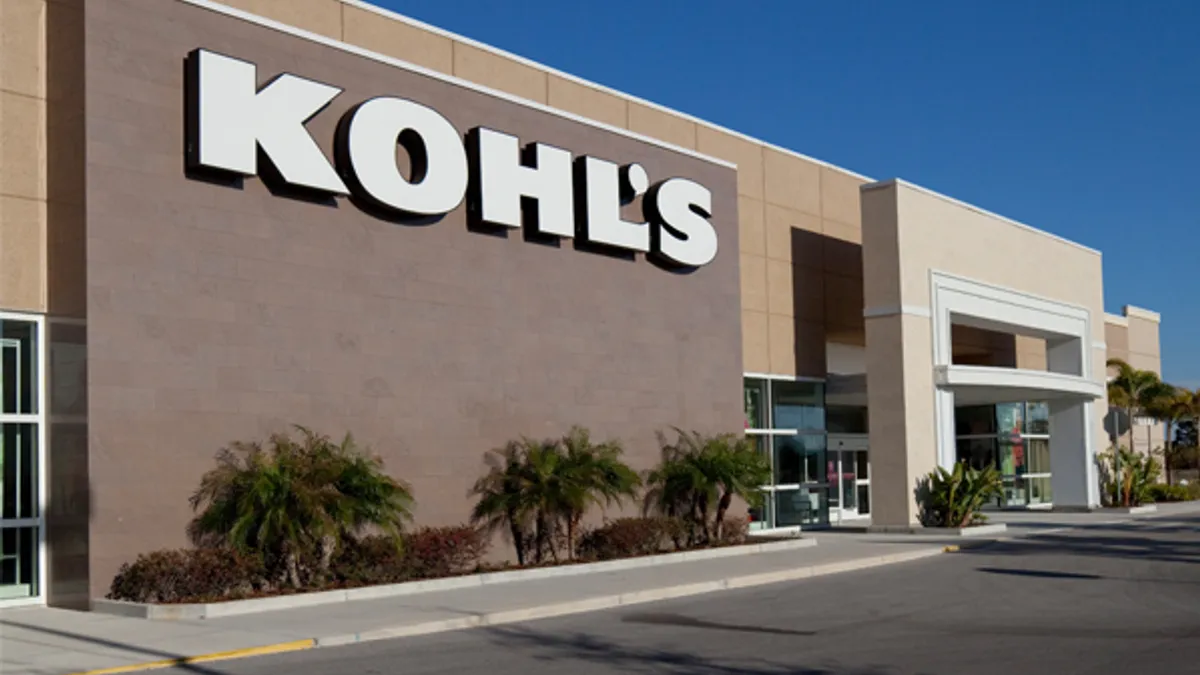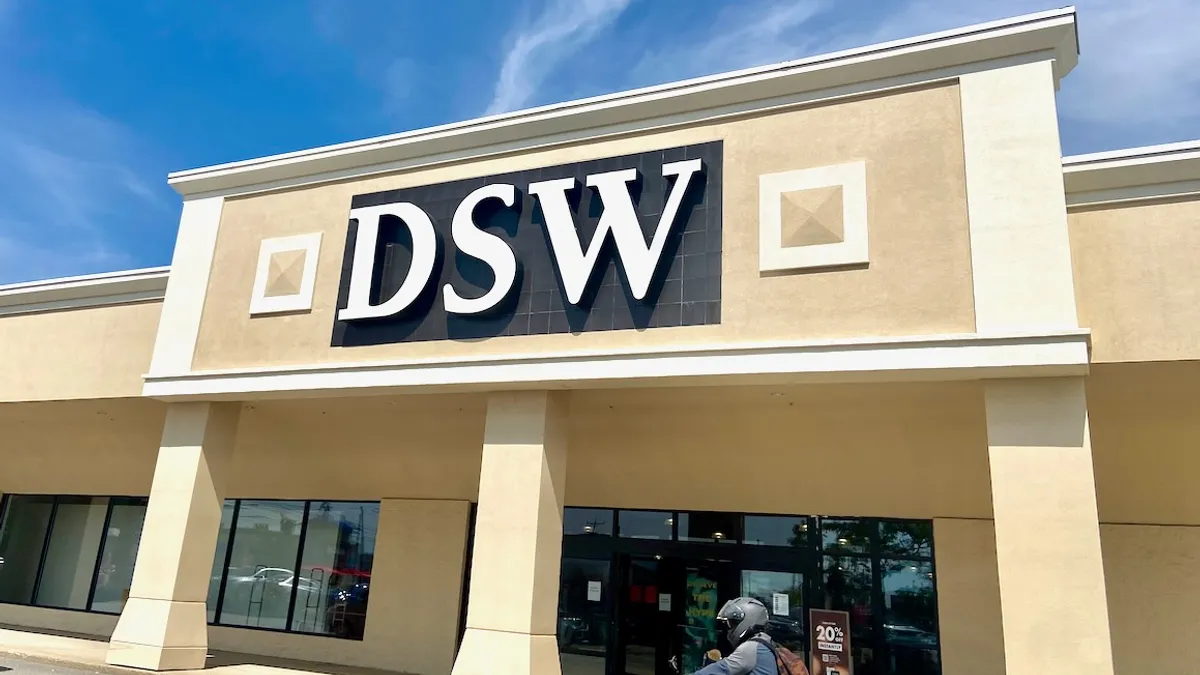Editor's note: After this piece first ran on Friday, Kohl's on Monday released two press releases. In one, the company announced it will hold its annual shareholders meeting on May 11, when it faces a board fight from activist investor Macellum Advisors. In the other, Kohl's board "acknowledged receipt of multiple preliminary indications of interest," saying they are "non-binding and without committed financing."
Kohl's, with a robust loyalty program, off-mall presence and knack for forging winning partnerships, once seemed immune to many of the troubles befalling department stores. For months now, however, the retailer has been on the defensive, and could be on the brink of being sold.
Activist investors have been on the retailer's case since last year, when they successfully got it to shake up its board. But they're back this year, pushing for more board changes and agitating for operational upheaval, including a possible spinoff of its e-commerce business or even a sale. CEO Michelle Gass has remained outwardly defiant, telling analysts during the company's Q4 conference call: "I want to address some of the uninformed and inaccurate commentary regarding the board's openness to maximizing value. We have a strategic and financial plan that will deliver substantial value. The board is testing and measuring that plan against other alternatives."
But, after rejecting a couple of offers as inadequate, Kohl's is also officially entertaining bids. The company has disclosed that there's takeover interest from more than 20 suitors, and that many are serious enough to be given access to proprietary company information.
Two of the top contenders appear to be Canadian department store company Hudson's Bay Company and, reportedly, private equity firm Sycamore Partners. A person familiar with HBC's process has confirmed its interest; Sycamore declined to comment.
Either way, Kohl's is in a tough spot.
HBC
Hudson's Bay Co. is in the department store business, running Saks Fifth Avenue and Canadian department store Hudson's Bay, along with off-pricer Saks Off 5th.
But that doesn't necessarily make it an ideal suitor. After years of plummeting sales and investor unrest, HBC went private in early 2020. At times the company, led by American real estate mogul Richard Baker, has seemed more focused on its property holdings than on its retail operations. Before going private two years ago, HBC divested its European holdings, closed its stand-alone furniture stores, sold off Lord & Taylor's Manhattan flagship to WeWork, and sold the rest of Lord & Taylor to apparel site Le Tote (with HBC retaining some ties to those properties). Lord & Taylor ultimately folded.
More recently, HBC, with investment from private equity, has broken up its remaining banners to maximize their financial appeal, peeling off the e-commerce operations of Hudson's Bay, Saks and Saks Off 5th from their stores, a maneuver that some analysts see as detrimental to their futures.
This track record reveals a lot about what might be in store for Kohl's if it joins the HBC stable, according to Mark Cohen, director of retail studies at Columbia University's Graduate School of Business.
"Richard Baker is a deal maker who masquerades as a retailer," he said by phone. "At the end of the day, he would be a catastrophe for Kohl's as he has been for virtually everything he's touched."
Sycamore
As the owner of several retailers, Sycamore Partners may appear to be the more ideal candidate.
"Sycamore owns Belk, so there could be some strategic value in combining that with Kohl's," Cohen said. "They're in similar businesses."
Like Kohl's, the 130-year-old Southern department store runs many stores in smaller strip centers and away from declining shopping malls. Sycamore bought Belk in 2015 for $3 billion. Last year, the company took a quick spin through Chapter 11, with some of its lenders taking a minority stake.
But as a private equity firm, Sycamore follows a financial playbook that often doesn't bode well for the long-term health of a retailer. More than 40% of private equity buyouts and acquisitions going back to the 2000s have gone bankrupt, according to Retail Dive's analysis. The retail landscape is littered with failed turnarounds at the hands of owners focused on squeezing the value out of real estate and other assets; the poster child of that is probably Sears.
"Sears was legendary, Kohl's isn't," said retail consultant Brian Kelly, who, like Columbia's Cohen, was an executive at Sears years ago. "But Kohl's represents another department store brand that has failed."
That has brought Kohl's to the position it's in today, Cohen said. Without a viable plan of its own — the company recently touted a plan to transform from a department store into "a focused lifestyle concept" — it remains vulnerable to a takeover.
"I think Kohl's is going to get sold because Kohl's doesn't have a strategy. There's no 'there' there," Cohen said. "If one of these bidders comes up with a big enough price the board will have to roll over and that'll be the end. That's the way it works."






















